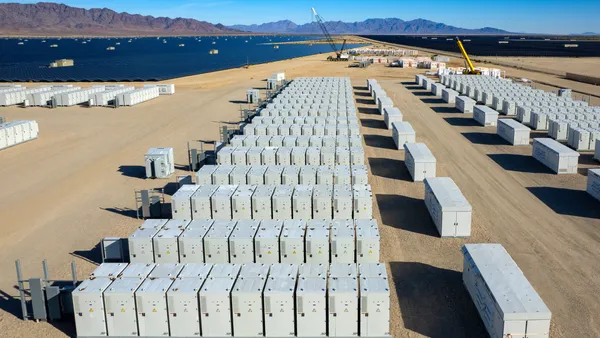Dive Brief:
- The Colorado Public Utilities Commission has dismissed exit fee complaints filed by La Plata Electric Association and United Power against the Tri-State Generation and Transmission Association.
- In a 3-0 vote, the PUC concurred with the Federal Energy Regulatory Commission that FERC has exclusive jurisdiction over the exit fee agreement established by Tri-State and protested by two of its members. The PUC order also determined the question of Tri-State's admission of MIECO as a non-utility member, which was also protested in the complaints, is a matter of corporate contract law and must be decided in Colorado district court.
- Tri-State officials say it plans to move ahead with its exit fee process in public proceedings before FERC, but La Plata says the PUC's decision to "punt" the legal dispute only allows uncertainty to continue.
Dive Insight:
In 2019, Tri-State's membership developed a new policy standardizing the process and fees to take effect if a member wishes to leave the cooperative before the end of their existing contract. In June 2020, FERC accepted the new terms.
Tri-State holds that the new exit fees ensure a fair outcome for all members, and the cooperative has additional measures in the works to increase the flexibility of their member contracts, according to spokesperson Lee Boughey.
However, La Plata and United Power have challenged the new exit policies, as well as the sequence of events that led to FERC's jurisdiction over them, including the admission of MIECO as a non-utility member of Tri-State.
In a statement, the Colorado PUC asserted that remanding the complaints to FERC and to the courts "aids the parties in getting an answer to the question from the proper legal forum, which will ultimately reduce the time needed to resolve this complex and important dispute."
La Plata sees things differently. "Punting on the legality of the non-utility member additions just continues the uncertainty of Tri-State's status of being FERC jurisdictional," CEO Jessica Matlock said in a statement. Matlock said LPEA will continue to seek a more flexible arrangement with Tri-State, and that the electric association is "hopeful we can get there working with Tri-State."
Tri-State, Boughey said, is "very pleased" with the commission's decision. MIECO was admitted "in compliance with our articles of incorporation and our bylaws," he said, but if the issue is going to be raised, Tri-State believes district court, not the PUC is the proper venue.
Boughey also said FERC is the proper regulatory authority to oversee Tri-State's operations. "We are an interstate power supplier serving members in four states, and it's only appropriate that we should be regulated by the FERC," he said. "That ensure that all of our members, no matter what state they operate in, will be treated fairly."














